🌍 Frontier Markets News, August 23rd 2025
A weekly review of key news from global growth markets

Africa
Kenya moves to reduce dependence on dollar-denominated debt
Kenya is exploring a plan to convert dollar-denominated debt into Chinese yuan and extend its repayment timeline, Bloomberg reports. According to Kenya’s treasury secretary John Mbadi the two countries are discussing ways to lessen the $1 billion in debt servicing Kenya pays to China every year. The conversion to yuan would reduce the country’s interest rate by nearly half, Mbadi said.
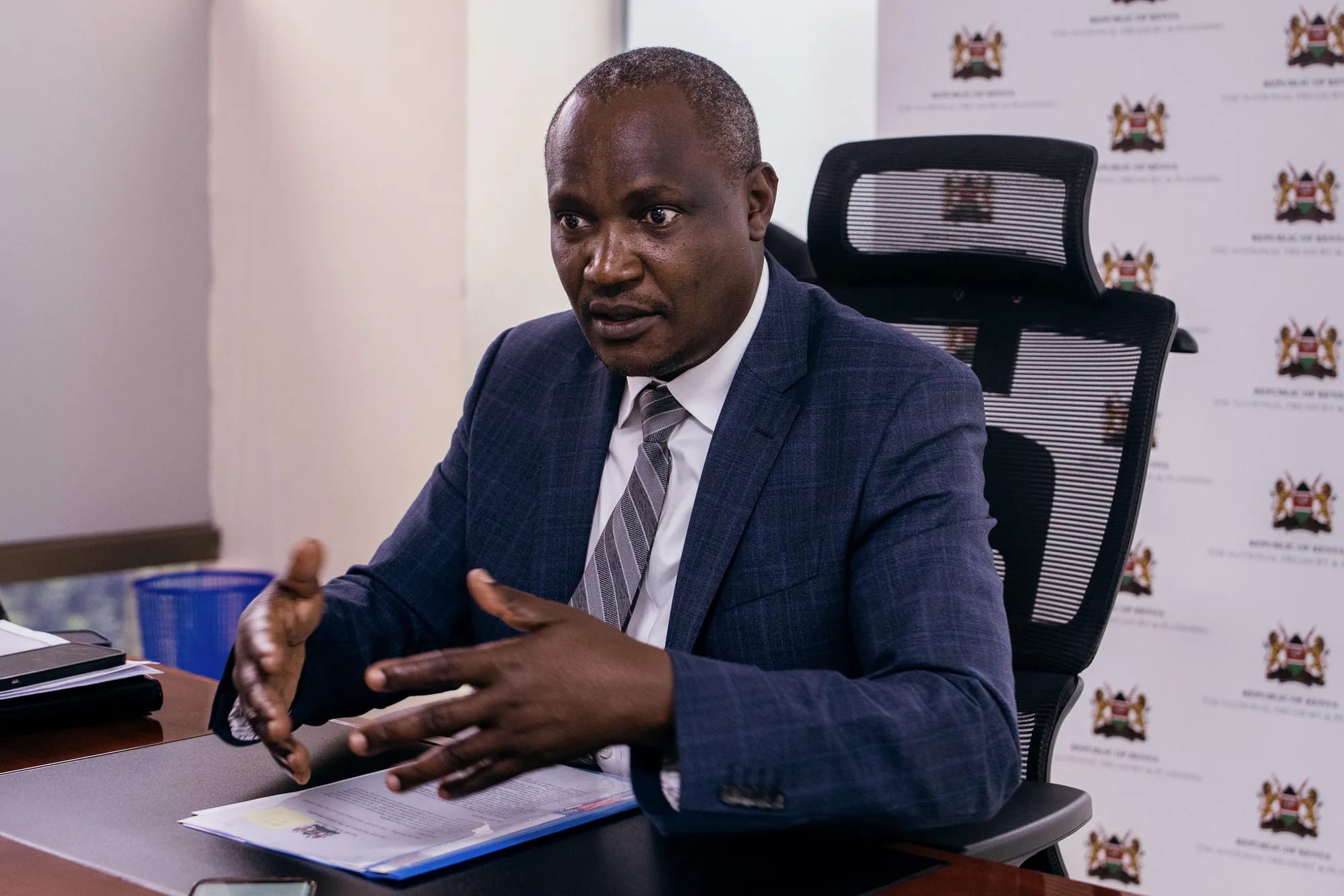
The country also this week signed an agreement to develop a yen-dominated loan backed by Nippon Export and Investment Insurance, Reuters reports.
- Japan aims to help African governments reduce high debt repayments (FT)
The announcements come amid a flurry of activity around Kenya’s bonds. Mbadi said the country plans to refinance several eurobonds falling due over the next nine years to help disperse repayments. Nairobi is also reportedly considering buying back some maturing local bonds, using the influx of cash from selling longer-dated bonds.
US Congress Democrats strive to keep focus on Africa
Democratic members of the US House of Representatives are pressing for the reestablishment of a business council focused on Africa that was originally created during the Obama administration, Semafor reports. Rep. Raja Krishnamoorthi, the top Democrat on the House Foreign Affairs subcommittee on China, penned a letter to the US Commerce Department asking for the revival of the 2014 President’s Advisory Council on Doing Business in Africa.
The body, along with high-level trade missions, would help “counter the efforts” of China, whose footprint has been growing rapidly in recent years. China’s bilateral trade with the African continent is now around four times that of the US, coming in at $280 billion last year.
The request comes as the Trump administration is pushing a “trade over aid” mindset, favoring commercial diplomacy over foreign assistance in Africa—but also potentially not renewing the African Growth and Opportunities Act trade agreement while imposing heavy tariffs on many African countries.
Asia
Vietnam plans near-$50bn investment to offset US tariffs
Vietnam is planning to invest almost $50 billion in an infrastructure development plan that is aimed at supporting economic growth as US tariffs set in, The Nation reports. The plan, equivalent to 10% of GDP, will see the construction of 250 projects ranging from housing to transportation and research facilities that the government hopes will take annual economic growth into the double digits.
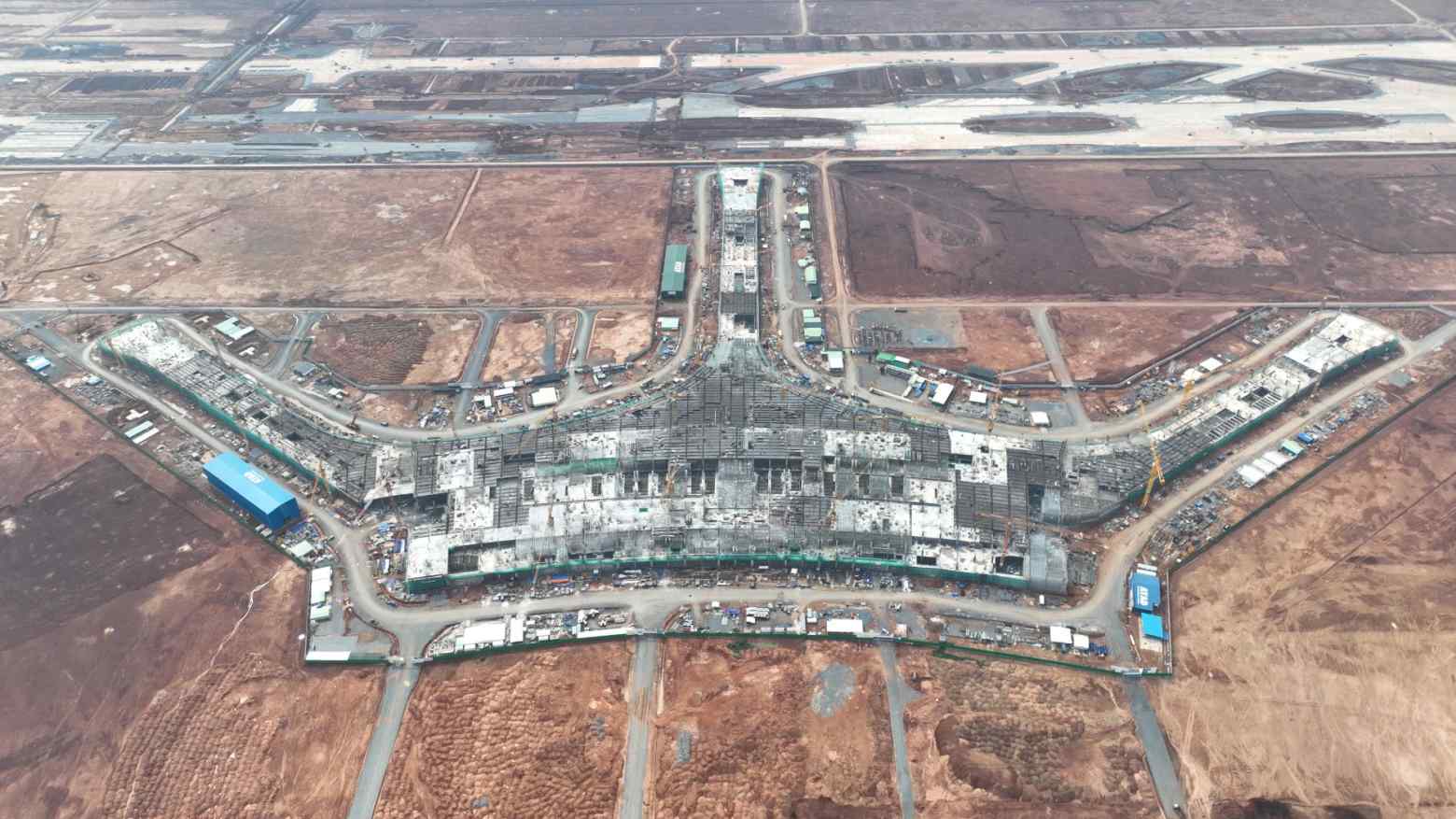
The state will provide about a third of the financing while sourcing the rest externally.
- Vietnam plans startup stock exchange (Nikkei)
The infrastructure program will test whether Vietnam can transition its economy toward investment-led growth as it adjusts to the recently imposed 20% US tariffs. Exports made up more than 86% of Vietnam’s GDP in 2023, according to the World Bank, so the country is particularly vulnerable to anything that hinders sales abroad.
Myanmar announces election date
Myanmar will hold elections for the first time in five years on December 28, the country’s military government announced on Monday. State media has said that more than 50 parties have registered to compete in the election, with nine expected to field candidates across the country, Al Jazeera reports.
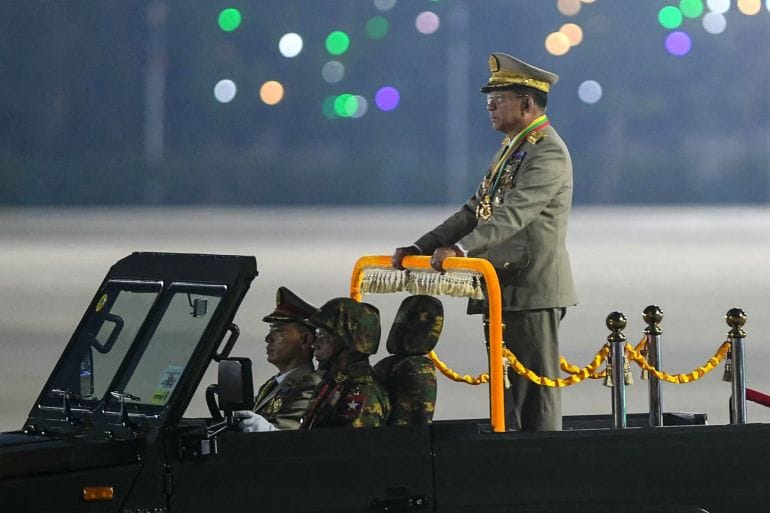
The elections, which will take place in stages during December and January, will be the first since the country’s military ousted the elected government in 2021, effectively starting a civil war that continues to rage.
International observers expect little more than a charade, Radio Free Asia reports. The military junta that runs Myanmar does not control the whole country, and it is unclear how they will hold elections in territory held by rebel groups who are at war with the government.
Bhutan reaps benefit of bitcoin investment
The tiny Himalayan kingdom of Bhutan has transferred $92 million worth of bitcoin to two new wallets, fueling speculation that it is considering selling the tokens, Bitcoinist reports.
Despite its small size, Bhutan ranks among the top six largest sovereign holders of the cryptocurrency, with some $1.15 billion—equivalent to more than a third of GDP—in its treasury. The country has embraced bitcoin mining through its sovereign wealth fund, Druk, in partnership with bitcoin mining company Bitdeer. In 2023, the government sold $100 million of its cache to finance pay rises for civil servants for two years, the WSJ reported.

This week’s move of almost 800 BTC is the second large transfer Bhutan has made this month. On August 5, the kingdom transferred bitcoin worth a little more than $100 million. Similar transfers in July ended up being sales, CoinDesk reports.
Middle East
Lebanon’s tentative recovery prompts credit-rating upgrade
Ratings firm S&P Global this week upgraded Lebanon’s local-currency credit rating from CC to CCC and maintained its outlook as stable, citing early signs of economic recovery, Investing.com reports. Lebanon’s local-currency debt shrank from 100% of GDP in 2020 to around 2% at the start of this year—largely due to depreciation and inflation—and the newly-elected government led by President Joseph Aoun resumed interest payments to the central bank in January.
S&P noted that recent progress on banking reforms is supporting Lebanon’s upgrade.
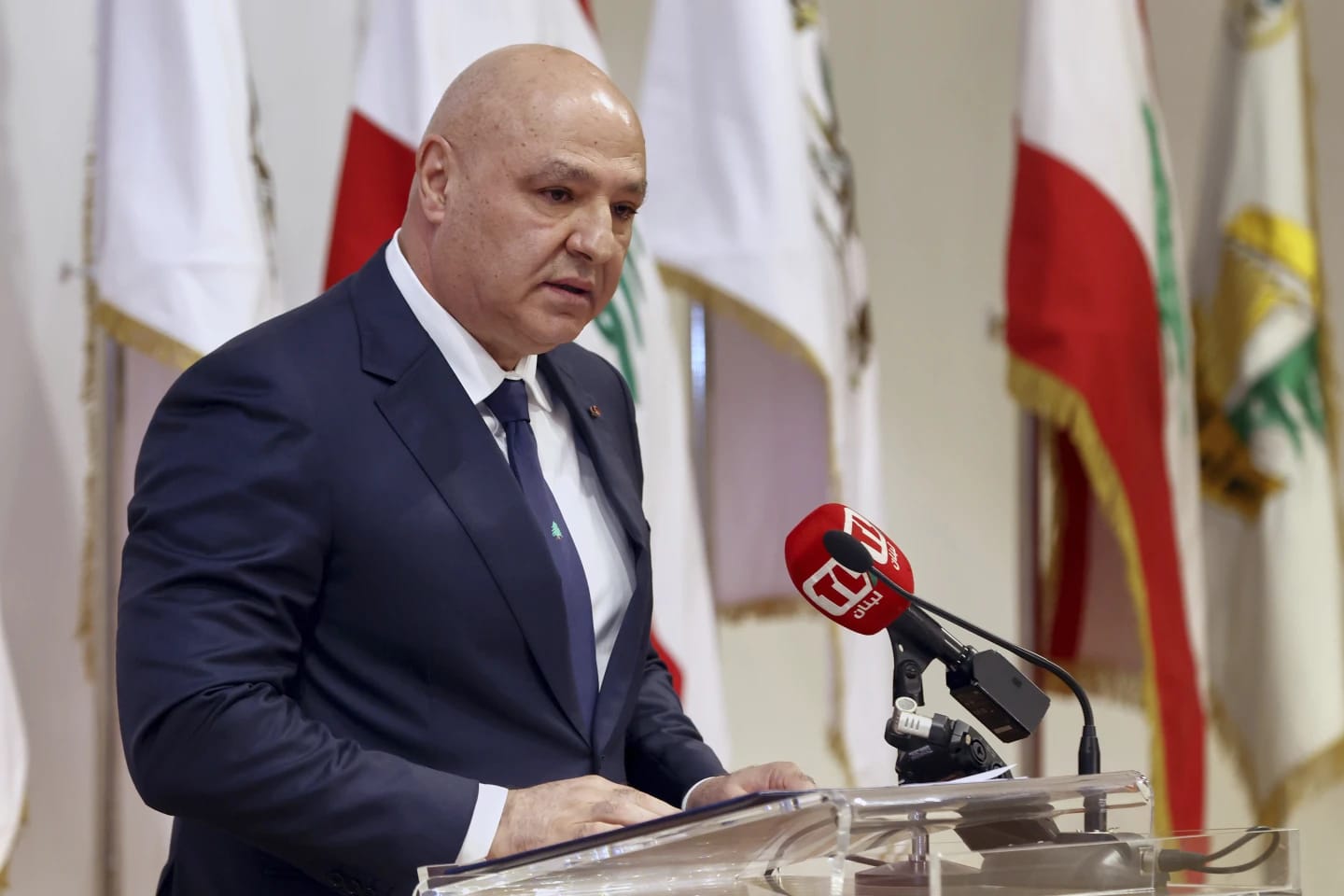
Aoun’s government has implemented tight fiscal controls that prevent the state from issuing new debt while successfully raising revenues, and reforms to exchange rate policies have stabilized the Lebanese pound. However, Lebanon’s foreign-currency credit rating remains unchanged at “selective default” as the country has yet to make significant progress restructuring its dollar-denominated debt.
Investors warm to Bahrain’s debt
Investors responded positively to Bahrain’s treasury bill auction this month suggesting growing enthusiasm for the country’s debt. According to the Bahrain News Agency, the 35 million dinar ($92 million) 6-month bond was 370% oversubscribed with a weighted average interest rate of 5.18%, compared to lower demand and a 5.42% rate on the July issue.
The stronger investor interest is promising for Bahrain, which is reportedly planning a $1.5 billion international bond sale to refinance its debt ahead of upcoming maturity payments on a $1 billion sukuk due this October and a $1.6 billion bond due next January.
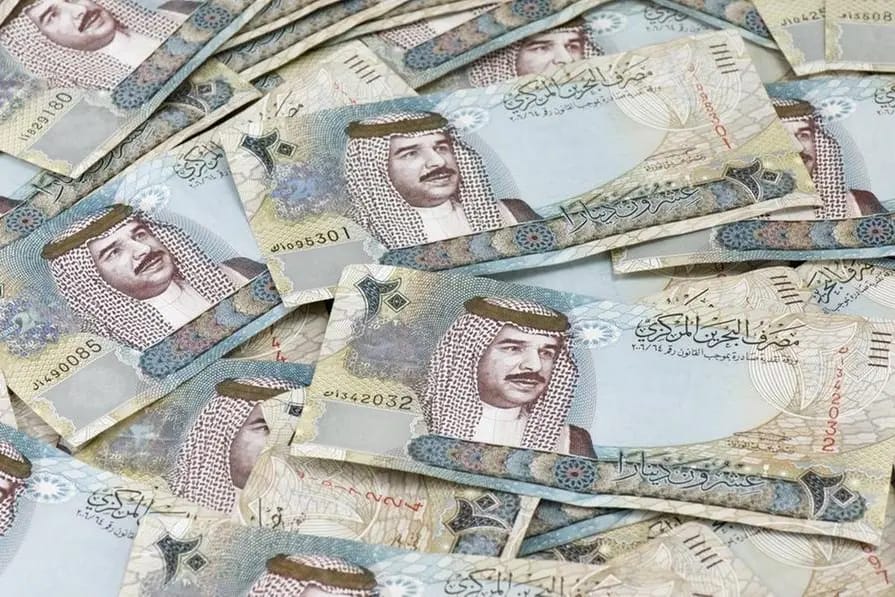
However, strong demand on this month’s bill sale doesn’t necessarily suggest success on the planned international bond, especially given both Fitch and S&P hold a negative outlook on Bahrain. Both ratings firms cited Bahrain’s sluggish economic growth, ballooning deficits, anemic currency reserves and high oil-production costs when they downgraded their outlooks on the country earlier this year.
Europe
Croatia attracts record tourism—and returning migrants
Croatia’s tourism sector is heading for a record year, with 15.5 million arrivals and nearly 80 million overnight stays so far in 2025, Reuters reports. Revenues from the sector, which accounts for a fifth of the country’s economy, are up 10%.
The boom coincides with a surge of return migration: more than 30,000 Croats have moved back from abroad in the past three years, with many starting businesses in services, construction and hospitality.

Rising living costs in Germany and Ireland are encouraging returns, while state incentives such as tax exemptions, housing support, and up to €27,000 in grants are easing reintegration.
Czech election favorites vow to end austerity
The Czech opposition party ANO, led by billionaire Andrej Babiš, is set for a strong showing in October elections with promises to abandon what it calls “fiscal self-flagellation,” Bloomberg reports. Deputy party leader Karel Havlíček has pledged to boost growth through higher spending on infrastructure and welfare, arguing that years of belt-tightening have hampered the economy and weakened public services.
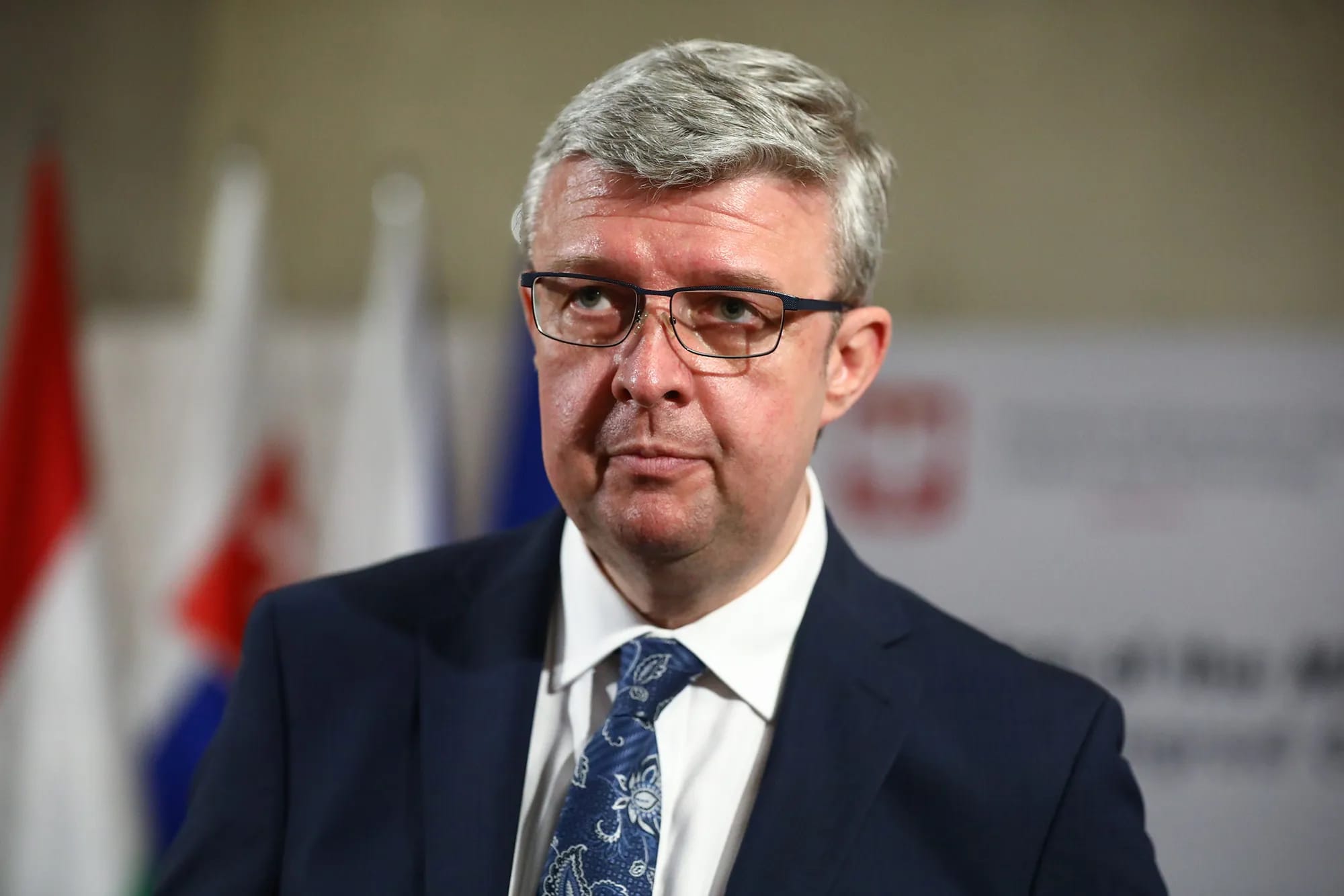
Prime Minister Petr Fiala, who argues that ANO’s program is a populist splurge, is doubling down on deficit reduction even as his government’s popularity erodes. A survey published this week found two thirds of Czechs were dissatisfied with Fiala’s performance, while just 30% are satisfied with the government’s program.
Latin America
Bolivia’s ruling party collapses in presidential elections
Bolivia’s once-dominant Movimiento al Socialismo (MAS) has collapsed after two decades in power, paving the way for an October presidential election runoff between centrist Rodrigo Paz and conservative Jorge Quiroga, Reuters reports. Preliminary results gave Paz 32% and Quiroga 27%, with MAS’ candidate sinking to just 3%—barely enough to keep the party’s legal standing.
Voter frustration over 20%-plus inflation, depleted foreign reserves and years of fighting between former president Evo Morales and current President Luis Arce contributed to the slump in support for MAS. Morales, barred from running, urged voters to cast blank ballots.
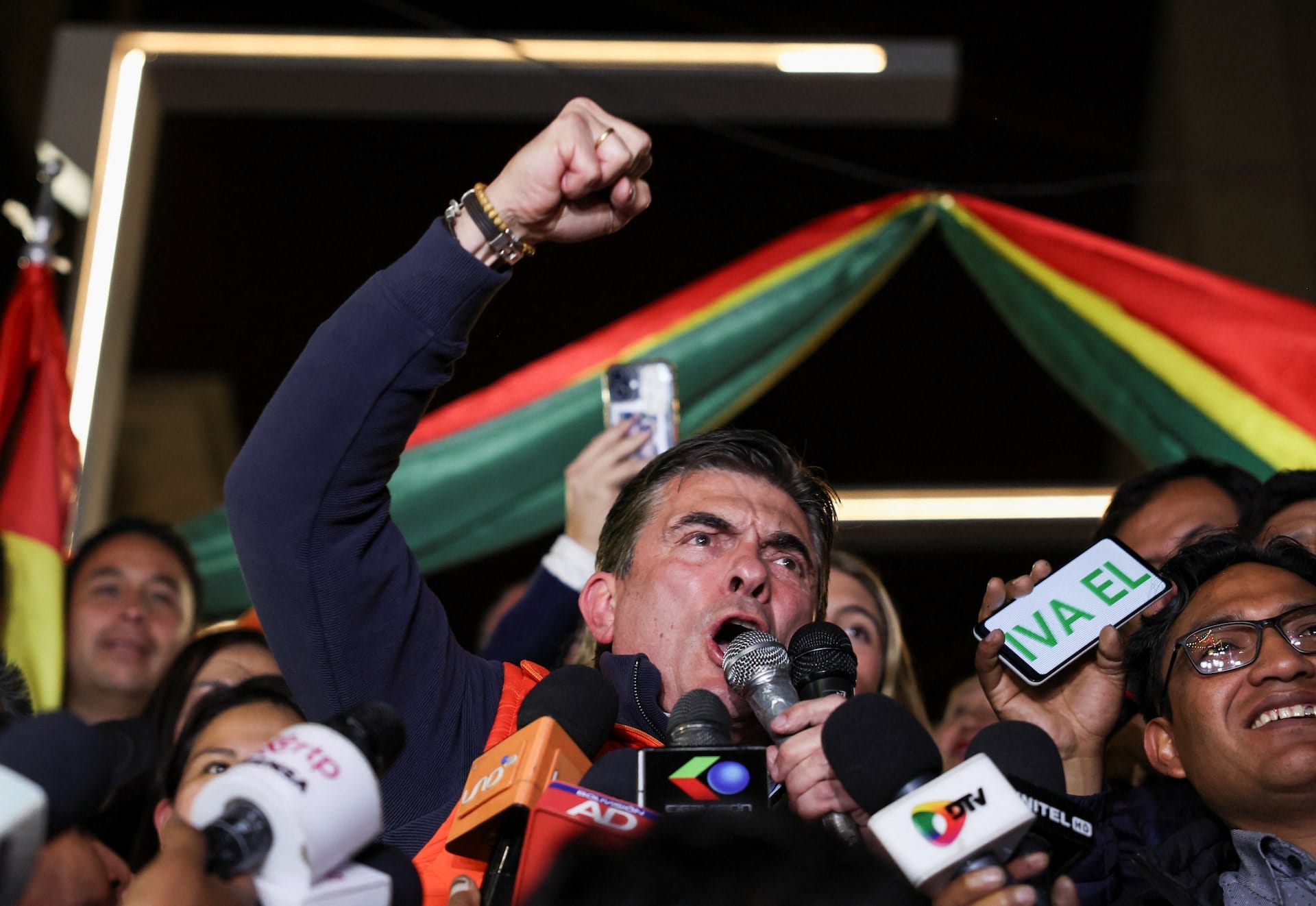
Markets rallied on the outcome, with Bolivian bonds climbing to their highest level this year on hopes of more orthodox policies and a potential IMF engagement. Paz has pitched a “Capitalism for All” agenda with lower tariffs, tax cuts, and decentralization, while Quiroga has vowed deep spending cuts and a break from alliances with Venezuela and Cuba.
The result also reshaped the congressional balance: MAS, which once controlled two-thirds of seats, is set to lose its majority, giving centrists and conservatives unprecedented leverage.
Panama’s bonds rise on improved government finances
Panama’s sovereign bonds are trading at their strongest levels in a year as better fiscal data suggested the country might avoid a downgrade to junk, Bloomberg reports. A narrowed deficit and revived global risk appetite helped push spreads to a three-year low.
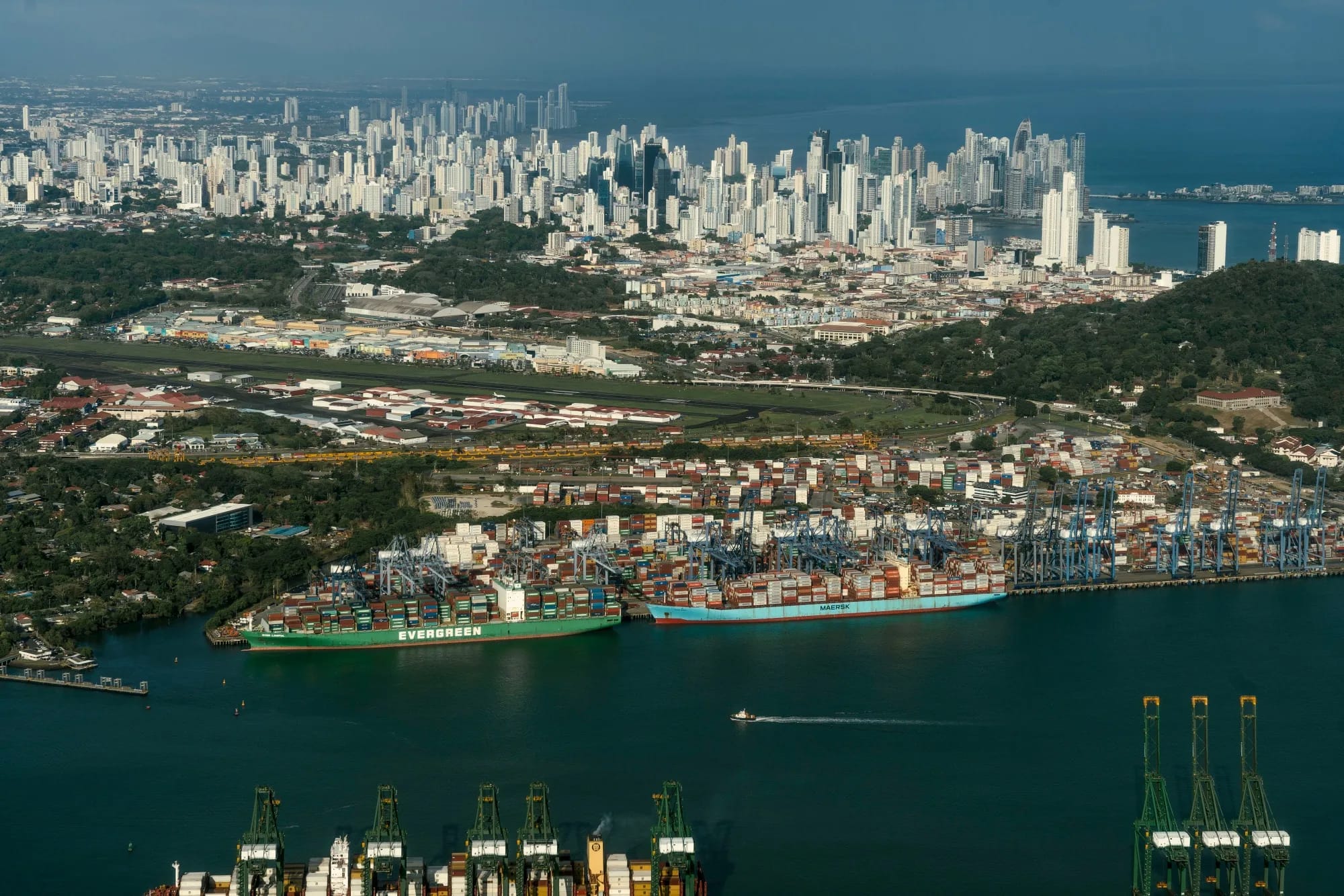
The government is banking on spending restraint to hit a 2025 deficit target of 4% of GDP, even as it leans heavily on short-term bank loans to meet obligations.
- Panama hopes to secure return of US banana giant Chiquita (France24)
However, structural weaknesses persist. The Panama Canal is forecasting a $400 million drop in revenue next year as global growth slows and tariffs disrupt trade, while copper mining—once a critical revenue source—remains stalled.
Peru cuts taxes to boost agricultural economy
Peru has slashed income taxes for agricultural exporters in a bid to accelerate investment and keep its agro-export boom on track, Reuters reports. Large producers will see rates cut from nearly 30% to 15% for the next decade, while medium-sized firms face a token levy. Small producers are exempt.
Officials expect the move to boost exports to $15 billion this year, led by blueberries, grapes, avocados and mangos.
The government is also pushing ahead with $24 billion in irrigation projects to expand arable land, primarily along the coast, and is looking to expand exports into new markets in India and Indonesia. Critics argue the tax breaks are unnecessary for a thriving sector, but supporters see them as vital to sustain growth and jobs as Peru aims for agriculture to overtake mining by 2050.
Global Macro
Trade war prompts opportunistic shuffle of global supply chains
Bangladesh’s garment industry is emerging as a surprise winner from Trump’s tariff overhaul, with orders rising as buyers shift from China and India. Tariffs on Bangladeshi exports were capped at 20%, lower than India’s 50% and well below potential hikes on China. Manufacturers report double-digit increases in orders, with new investment flowing into production zones as US retailers reposition supply chains.
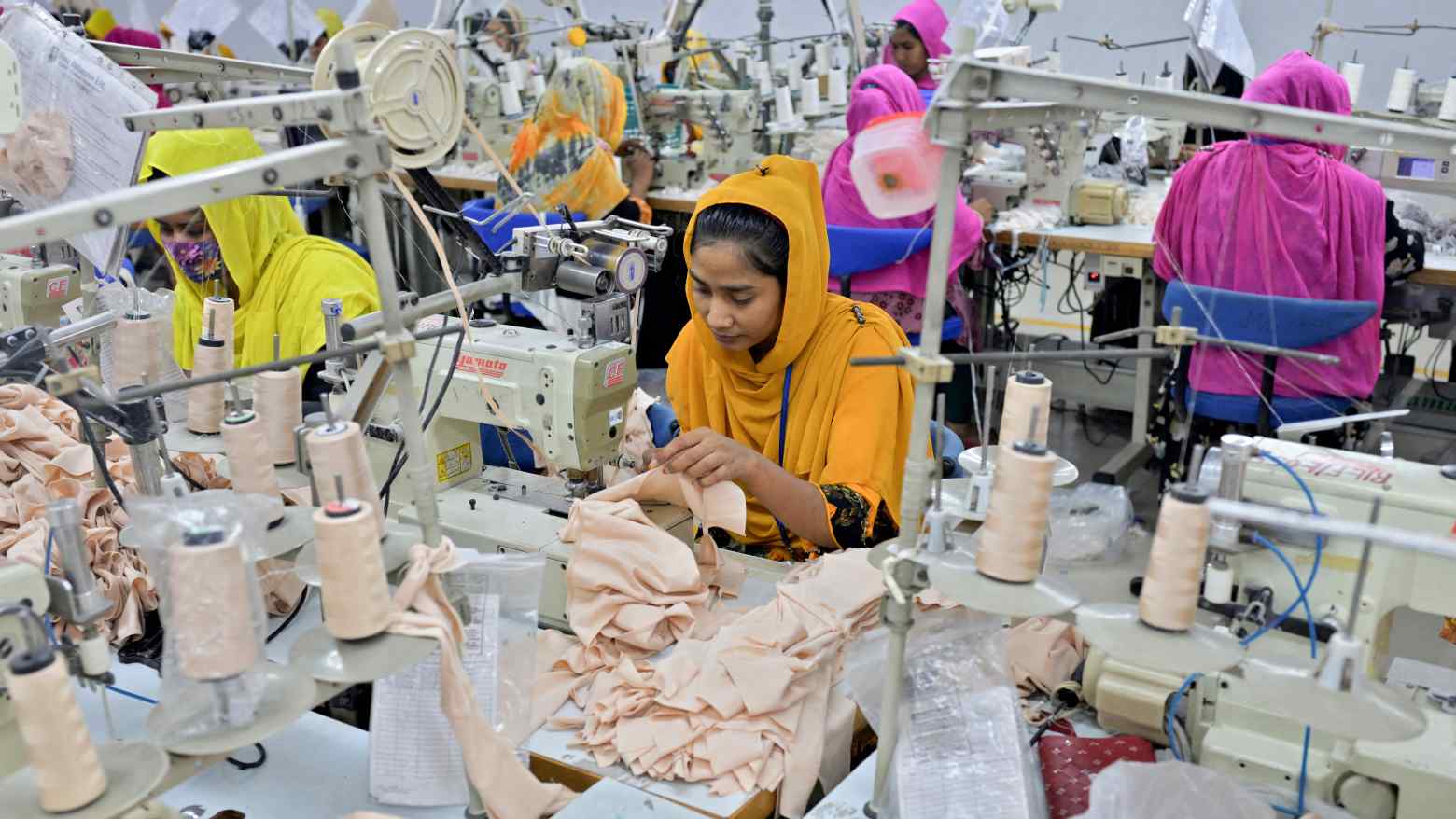
Similar changes are playing out elsewhere. India is buying discounted palm oil from Colombia and Guatemala, while Peru is pushing blueberries and gold to Asia as trade ties deepen via the China-financed Chancay port. Comoros is pursuing fisheries cooperation with Liberia, and South Sudan and Djibouti this week signed a deal to develop a trade corridor that would give the landlocked country a new outlet to global markets.
Questions remain over sustainability, however. Higher retail prices for garments in the US could blunt Bangladesh’s export gains, while Peru faces domestic pushback over its plans to boost agribusiness exports. India’s pivot to Latin American palm oil suppliers could weigh on Southeast Asian producers, reshaping price dynamics in a market already under stress. Together, these shifts point to a more fragmented but opportunistic trade landscape in which frontier and emerging markets jockey for advantage.
What We’re Reading
DRC appoints president’s ally as central bank governor (Semafor)
Uganda in talks with DFIs over $3 billion railway (Reuters)
Nigerian factories go local to recover from second currency devaluation (FT)
Ghana cocoa farmers revolt over prices, threaten mass smuggling (Reuters)
Cameroon set to ramp up borrowing (Reuters)
Safaricom targets sevenfold increase in Ethiopian subscribers in five years (Semafor)
China dangles Belt And Road investment to mend Taliban-Pakistan ties (Radio Free Europe)
Solar power adoption soars in Pakistan (NPR)
Pakistan presses China for more Belt and Road investment in Gwadar (Nikkei)
Bangladesh’s weak tax revenue raises foreign debt trap concerns (Nikkei)
UK sanctions Kyrgyzstan over Russia ties (GOV UK)
Philippines looks to expand cooperation with EU (Nikkei)
Indonesia central bank delivers surprise cut amid tariff concerns (Nikkei)
Thailand to launch crypto-to-baht conversion for foreign tourists (Reuters)
Stonepeak launches $76 billion platform to develop Gulf renewables (Semafor)
Saudi Arabia’s 2029 Asian Winter Games at risk from NEOM construction delays (FT)
Iranian President’s coalition lays out reform plans (Iranian Media)
Syria and Israel hold direct talks mediated by the US (NYT)
Armenia hails Iran ties after US-backed peace declaration with Azerbaijan (Bloomberg)
Romania adopts controversial pension reform plan (BalkanInsight)
Turkey set for gas-exploration deal after wooing Libyan former foes (Bloomberg)
US strikes deportation deals with Honduras and Uganda (BBC)
China warns US over military build-up around Venezuela (South China Morning Post)
Chile heads toward a polarized election runoff (FrontierView)
Argentina’s economy extends downturn (Bloomberg)
We are committed to providing FMN readers with a free weekly digest of politically unbiased, succinct and clear news and information from frontier and small emerging markets.
Please consider becoming a paid supporter to help cover some of our costs and support our continued development of sharp markets-focused coverage and new informational products. Paid subscribers will also gain exclusive access to our quarterly EM/FM report that aggregates EM insights from 25 major banks, international institutions and consultancies.





